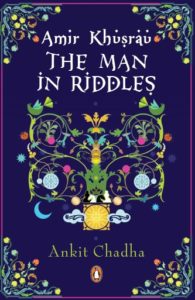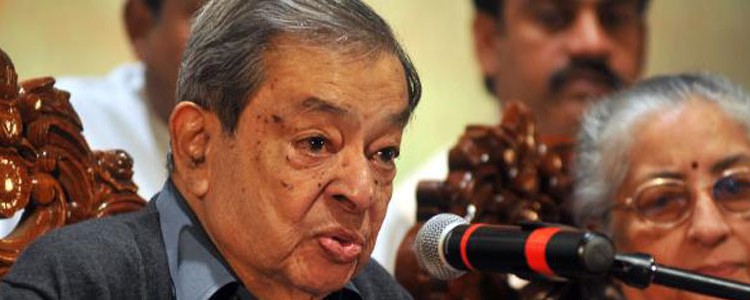Jaya’s newsletter – 1
( As of this week I will be publishing a weekly newsletter on publishing and book news — international and local across languages. So if there is anything that you would like to alert me to please write: jayabhattacharjirose1 at gmail dot com )
****
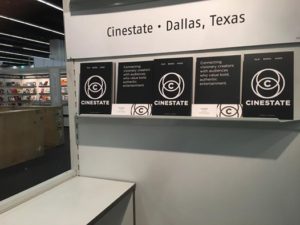 Will Evans, Founder, Deep Vellum Publishing announced the launch of Cinestate, a cross-media company. Cinestate is looking to acquire rights to stories for literary translation and also to works that will appeal to a mass audience in multiple media, including print, digital, audiobooks, and film. ( http://bit.ly/2eTEkkX )
Will Evans, Founder, Deep Vellum Publishing announced the launch of Cinestate, a cross-media company. Cinestate is looking to acquire rights to stories for literary translation and also to works that will appeal to a mass audience in multiple media, including print, digital, audiobooks, and film. ( http://bit.ly/2eTEkkX )- Ananth Padmanabhan, CEO, HarperCollins India wrote a guest editorial for Publishing Perspectives: “A call to protect freedom of expression and copyright in India” ( http://bit.ly/2dYV0tM) In a landmark judgement on 16 September 2016 Justice Endlaw of the Delhi High Court ruled on the “DU photocopy case”. It is being watched worldwide as a siginificant case study of copyright laws and its interpretation of “educational use” since it is argued that it will impact all forms of reproduction. The judgement and related resource material have been uploaded on SpicyIP, a blog on intellectual property (IP) and innovation law and policy, managed by IP exerts and lawyers. (http://bit.ly/2eTGotj )
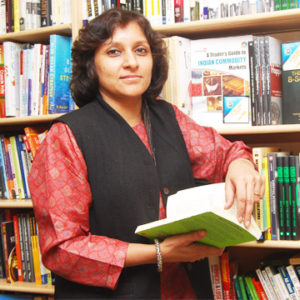 Indian trade publishing is abuzz with the resignation of Karthika VK, Publisher, Harper Collins India. She had been at the post for more than a decade. (http://bit.ly/2dYM1ZF )
Indian trade publishing is abuzz with the resignation of Karthika VK, Publisher, Harper Collins India. She had been at the post for more than a decade. (http://bit.ly/2dYM1ZF )- Significant appointments: Dharini Bhaskar, Publisher, Simon & Schuster India and Naveen Choudhary, Head of Marketing – Global Academic Business for India.
- Prajwal Parajuly, has been appointed to the jury of the 2017 International Dylan Thomas Prize.
 (http://bit.ly/2eKypzU )
(http://bit.ly/2eKypzU ) - Internationally there is grief at the sudden demise of legendary literary agent, Carole Blake, Blake & Friedmann Agency. ( http://bit.ly/2dKymad) .
- The Nobel Prize for Literature was awarded to Bob Dylan “for having created new poetic expressions within the great American song tradition”.( http://bit.ly/
2f9n3sX ) Bob Dylan is yet to acknowledge the award. (http://bit.ly/2dYQvzq). If he chooses to reject it as Jean Paul-Sartre (1964) the Nobel committee will continue to recognise him as the awardee. The Man Booker Prize for Fiction 2016 ( £50,000) was awarded to Paul Beatty for his satirical novel The Sellout. ( http://bit.ly/2dGYDWG) It is the first time an American has won. Also indie publishers Oneworld have created history for having won the award in two consecutive years. Last year their author Marlon James won. Only Faber has won this award previously back-to-back in the eighties for Oscar and Lucinda by Peter Carey (1988) and The Remains of the Day by Kazuo Ishiguro (1989). The morning after the award was announced Oneworld placed an order for 170k more copies of The Sellout of which 10,000 are being reserved for India. It is being distributed by PanMacmillan India. ( http://bit.ly/2eI1tdy )
- The Nigeria Prize for Literature ( $100,000) was awarded to novelist Abubakar Adam Ibrahim
for Season of Crimson Blossoms. The Nigeria Prize for Literature rotates yearly amongst four literary genres: prose fiction, poetry, drama and children’s literature. ( https://www.facebook.com/nigeriaprizeforliterature/posts/1244773285544573 )
Madeleine Thien wins 2016 Governor General’s Literary Award for fiction (http://bit.ly/2ePd2xE)
- A new literary prize for a non-existent book has been announced. ( http://bit.ly/2exG0DW )The winner of the Nine Dots Prize, announced Friday, will be awarded $100,000 (£82,000). The new award hopes to inspire innovative thinking about social science issues and is open to all authors, regardless of whether they have been published or not, from around the globe. The winner of the Nine Dots Prize will be announced in May 2017 and their book will be published in May 2018.The $100,000 prize is funded by the Kadas Prize Foundation, an English charity that seeks to stimulate research around the social sciences.
Book launches: On 25 October 2016 the annual Roli Books exhibition was inaugurated at Bikaner House, New Delhi. (26 Oct – 9 Nov 2016) It is on the Mewar Ramayana, the finest surviving illustrated manuscript. The book was launched by Jerry Losty and Sumedha Verma. Pramod Kapoor of Roli Books spent more than five years putting together this splendid book. 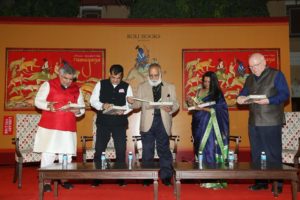
- James Gleick Time Travel ( Harper)
- Kio Stark When Strangers Meet ( TED, Simon and Schuster)
- Kit de Waal My Name is Leon ( Viking, an imprint of Penguin)
- (Eds.) Tutun Mukherjee and Niladri R. Chatterjee Nari Bhav: Androgyny and Female Impersonation in India ( Niyogi Books)
- Vikas Khanna Essence of Seasoning ( Easy-to-make recipes that border on fusion cuisine.)
- Ankit Chadha Amir Khusrau: The Man in Riddles ( A stunning edition by Puffin India)
- Juhi Sinha Festival Storybook ( Four stories on festivals, Scholastic India)
- The Big Book of India Festival Puzzles ( Scholastic India)
- “Algorithms could save book publishing but ruin novels” ( Wired, 16 Sept 2016, http://bit.ly/2eTDFRZ)
- A wonderful profile of literary translator and editor, Words without Borders, Susan Harris: http://bit.ly/2f9PSFO
- “Flag hoisting in Chinnoor” A translation of the Tamil short story Chinnooril Kodiyetram written in 1968 by Saarvaagan, republished in Frontline, 28 Oct 2016. Translated by Subashree Krishnaswamy ( http://bit.ly/2eTw85o )
- “The House of Fergiani: a Libyan publishing family’s commitment to literature and the liberating power of books” On Darf Publishers ( The National, 15 Oct 2015, http://bit.ly/2dOg9DA )
27 Oct 2016

